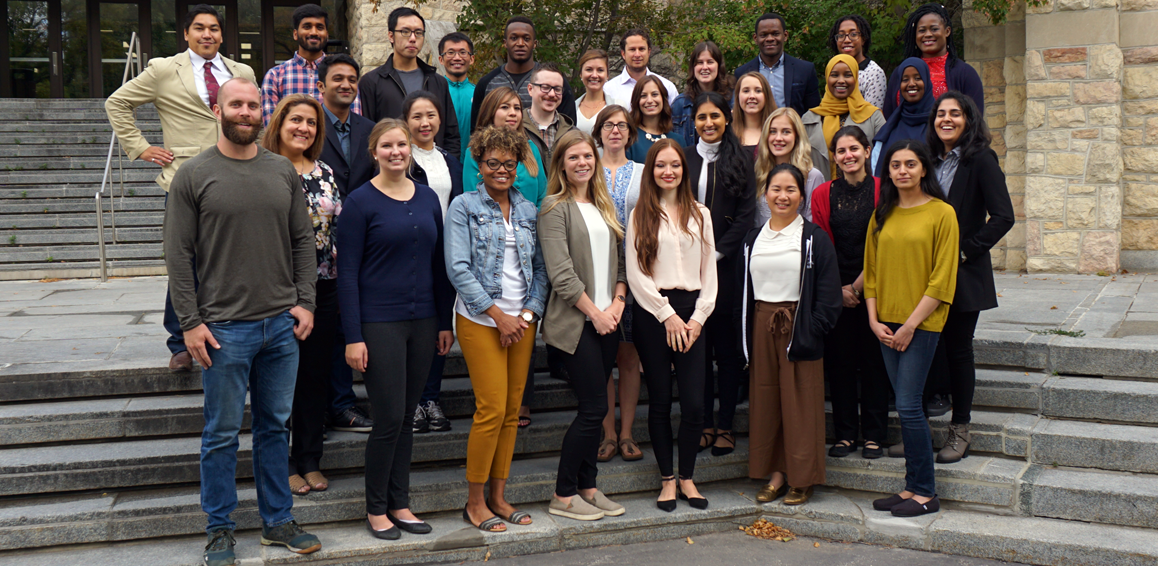Why study the USask MPH?
- Earn an accredited master’s degree in an exciting new discipline
- Gain hands-on work experience during a 12-week practicum
- Benefit from interdisciplinary learning opportunities
- Learn from experienced instructors with wide-ranging expertise
- Be part of an international centre of excellence and research collaboration
- Train for a diverse and rewarding career in Public Health
- Make a difference to health-care systems all over the world

Aims and objectives of the MPH program
- Prepare students to work in the Public Health field by:
a) providing foundational knowledge within the 5 core areas of Public Health:
- Biostatistics – Collection, storage, retrieval, analysis and interpretation of health data; design and analysis of health-related surveys and experiments; and concepts and practice of statistical data analysis.
- Epidemiology – Distributions and determinants of disease, disabilities and death in human and animal populations; the characteristics and dynamics of populations; the natural history of disease; and the biologic basis of health.
- Environmental Health Sciences – Environmental factors, including biological, physical and chemical factors that affect the health of a community.
- Health Services Administration – Development, organization, administration, management, evaluation and policy analysis of health programs.
- Social and Behavioural Sciences – Concepts and methods of social and behavioural sciences relevant to the identification and the solution of public health problems.
b) partnering with public health agencies in Canada, as well as the International Community, to provide opportunities in which students can apply their foundational Public Health knowledge in the field and gain practical experience.
2. Familiarize students with the Public Health Agency of Canada (PHAC) core competencies and how the PHAC competencies relate to the above five core areas of Public Health.
3. Regularly review and adapt its curriculum to reflect the current needs in Public Health, as identified by stakeholders.
Career paths
A Master of Public Health degree can open doors to a wide variety of fascinating and rewarding careers, and many public health jobs now require a graduate degree in the field.
Graduates with an MPH undertake a variety of professional roles which include:
- Assessing and monitoring health status and risk factors in populations
- Ensuring that communities have access to appropriate and effective health care
- Engaging communities on health issues, community development and mobilization
- Formulating public health policies designed to solve local, national and international health problems
- Researching factors that lead to or prevent disease
- Analyzing public health data and applying quantitative and qualitative methods to assess causes of ill health
- Developing multidisciplinary and collaborative programs and strategies
- Implementing and evaluating intervention programs to improve the health of a population
- Conducting community health needs assessments
- Identifying environmental health hazards and methods of remediation
- Investigating an outbreak of disease or symptoms in a population
- Providing management and leadership within the health care system
The MPH degree prepares public health professionals for careers in the public, not-for-profit and private health sectors of the economy. Depending on their area of specializing, MPH graduates may be employed as:
- Clinical trials analyst
- Health promotion specialist
- Environmental health specialist
- Research data coordinator
- Survey statistician
- Community development specialist
- Health policy analyst
- Health care manager
- Research assistant
- Biostatistician
- Epidemiologist
- Infection control officer (in combination with an RN degree)
- Medical health officer (in combination with an MD degree)

